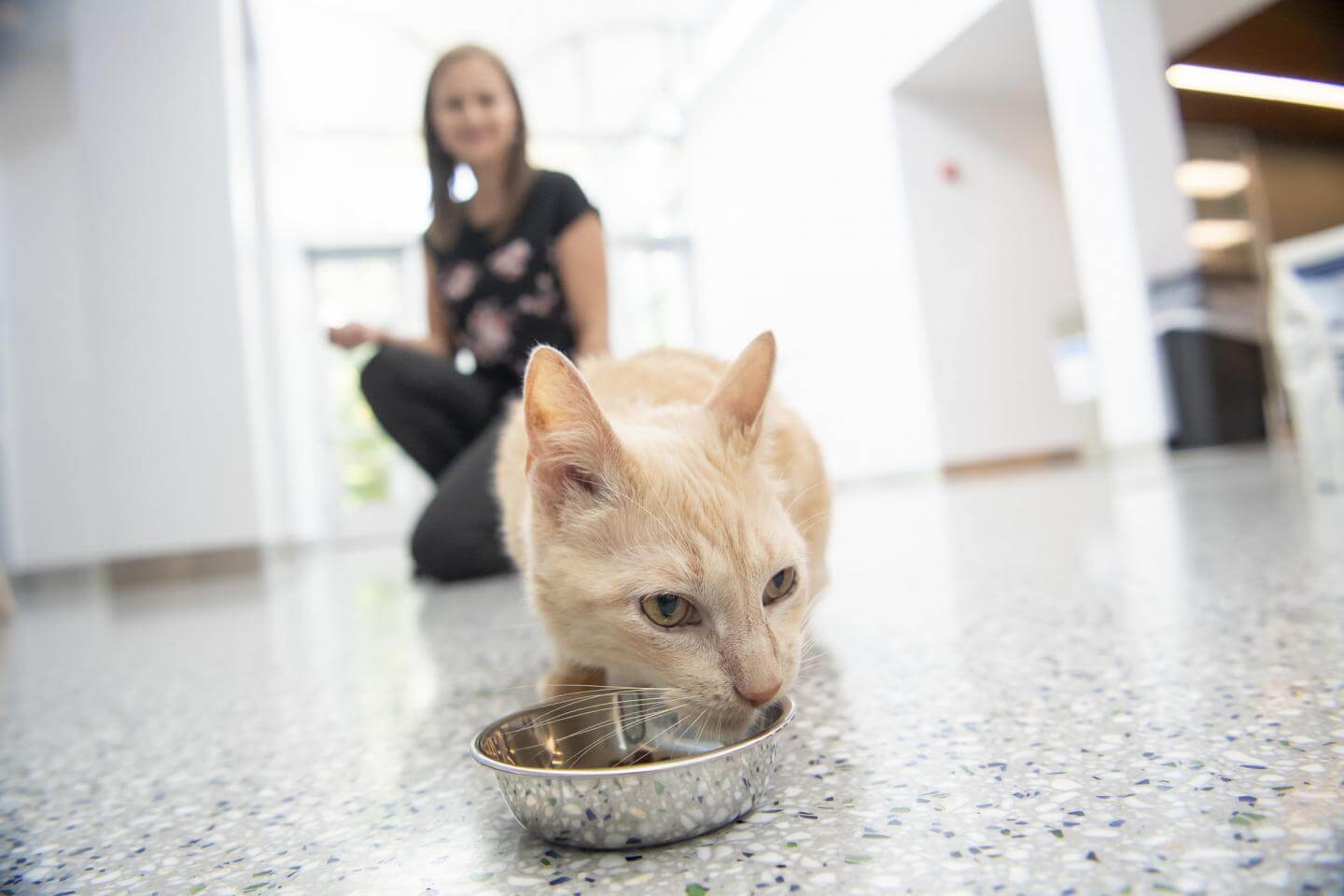If you’ve had a child who took formula as an infant, you may be familiar with milk oligosaccharides, which boost the beneficial gut flora in babies. Now, research suggests these prebiotic-like supplements may promote gut immunity in mammals, such as cats and dogs.
Researchers from the University of Illinois advanced this study by testing the effects of the supplements on cats and dogs. “When we first looked into this, there had only been one study on milk oligosaccharides in dogs, and none in domestic cats. The closest were really small studies on a single lion and a single clouded leopard,” says Kelly Swanson, a professor in human nutrition in the school’s Department of Animal Sciences and the Division of Nutritional Sciences, in a statement.
“Our study was the first robust characterization of dog and cat milk oligosaccharides,” adds Swanson. “Our data not only provide a better understanding of how milk meets the nutritional needs of newborn kittens and puppies but also how it helps promote gut immunity and establish a healthy gut microbial community early in life.”
Swanson and his team discovered three oligosaccharide isomers: 3’sialyllactose, 6′-sialyllactose, and 2’fucosyllactose, which is the primary ingredient in many of the current formulas for infants. They found that over 90% of the total amount of oligosaccharides in the canine milk consisted of these three isomers. Conversely, 90% of feline milk was composed of 15 isomers, including difucosyllactose-N-hexaose b, 3′-sialyllactose, and lacto-N-neohexaose that made up over 10% of the total.
“Even though domestic dogs and cats both evolved as carnivores, they are metabolically distinct in many ways. Although pet cats still exist as true carnivores, pet dogs are omnivorous in nature,” Swanson says. “These new milk oligosaccharide data highlight another interesting difference between the species, justifying further research to reveal their role in the nutritional and health status of newborn puppies and kittens.”
Prior to this research, pet food companies began to initiate research of their own after learning of the nutritional benefits of oligosaccharides. Gnubiotics Sciences, a biotech company in Switzerland, presented their new product called GNU100 in 2019. The product was created to resemble the beneficial nature of oligosaccharides from animal milk, however, animal clinical trials were necessary for product approval. After hearing of this, Swanson and his team accepted the challenge.
His team focused on two studies to test the efficacy of GNU100 in cats and dogs, including the degree to which the supplement was palatable and digestible. In the first study, in vitro experiments using cell cultures revealed no harmful effects or cell mutation potential. Although toxicity was not speculated, the finding meets one of the most fundamental FDA criteria for any new component in pet food.
The team then treated commercial dry cat or dog meals with a 1% mixture of GNU100 and a fat component. Diets that lacked GNU100 but that contained fat were given as a control. When the animals were given the choice between the treated and untreated bowls, they overwhelmingly preferred the bowl treated with GNU100.
“In the cats, it was a huge preference. They ate nearly 18 times more food with GNU100 than the control food. We had just been hoping they wouldn’t reject it. You know, cats can be pretty finicky,” Swanson says. “When we got the data back it was like, wow, they really love that stuff! And the dogs did, too.”
According to Swanson, GNU100 is made up of nutritious oligosaccharides as well as smaller proteins that may help create a more appealing meal.
For the last test, the team observed healthy adult cats and dogs as they ate varying diets of the mixture over half a year. The diets contained varying doses of GNU100 from 0%, 0.5%, 1%, and 1.5%. During the experimental period, they assessed changes in metabolites and microbial flora in the gut, as well as stool quality, metabolites in the blood, and nutritional digestibility.
Results indicate that GNU100 was well tolerated by cats and dogs, with no negative health consequences. The researchers also noticed positive changes in the gut microbiome, such as the increase of beneficial species and healthier metabolite profiles.
Apart from the taste test, GNU100-related alterations were as predicted, revealing fascinating patterns in gut flora and metabolites, something which Gnubiotics intends to investigate further. Swanson and his team believe more specialized research concentrating on newborn cats and dogs, senior cats and dogs, or pets that have weakened immune systems might have shown greater results.
“Theoretically, these products should stabilize and feed good bacteria in the gut as well as limit the growth of potentially undesirable bacteria. So if an animal is undergoing treatment for something with antibiotics or is in a high-stress situation, having that product in the diet might keep the gut from destabilizing,” says Swanson. “Another target group for these products might be young animals as a way to maintain beneficial bacteria in the gut as they wean off their mothers. We’d need to do more testing to see if the product holds up in those target groups, but at least we know now that it is safe and well tolerated.”
This study is published in the journal PLOS ONE.
The three articles referenced can be found online at:
